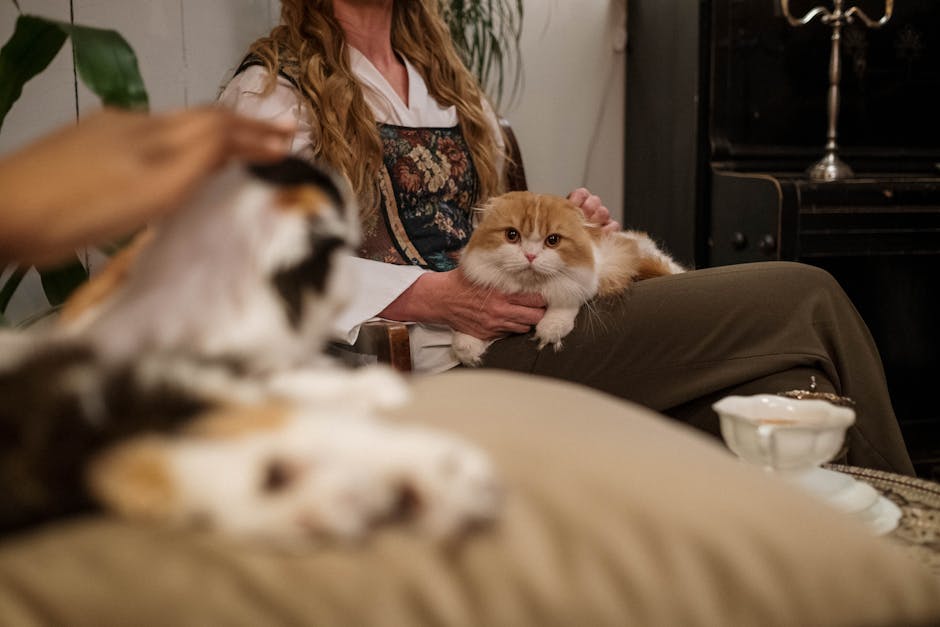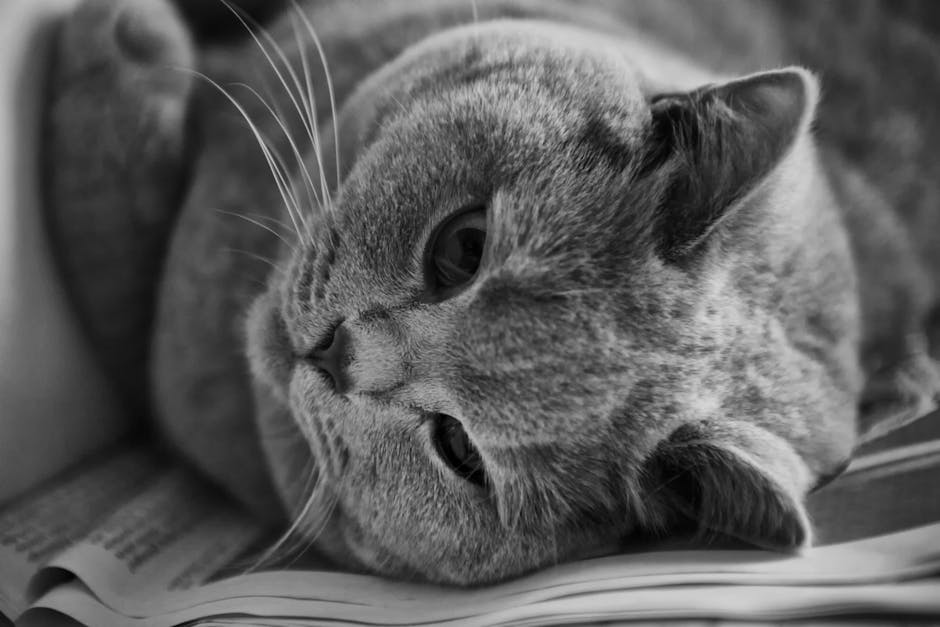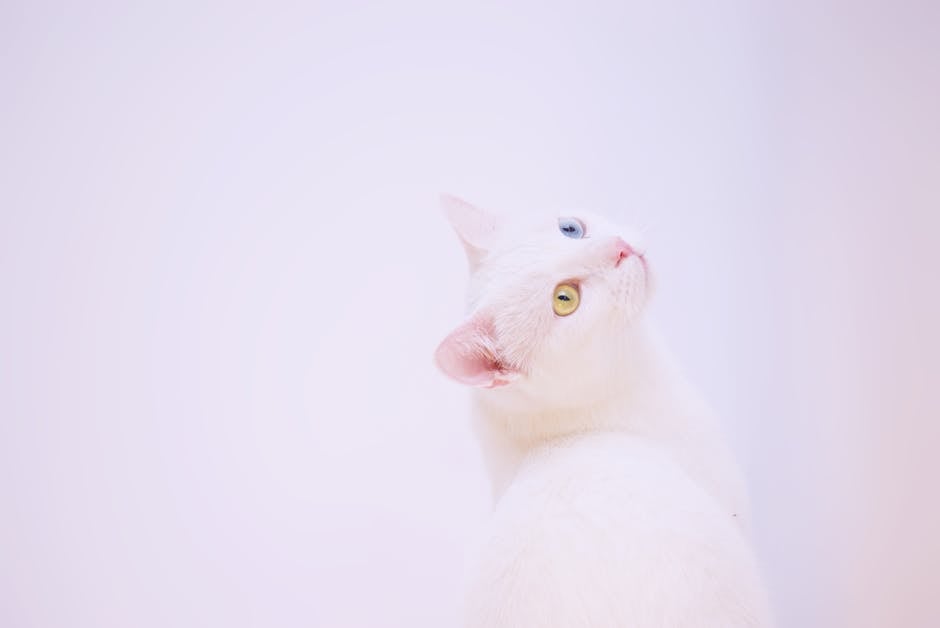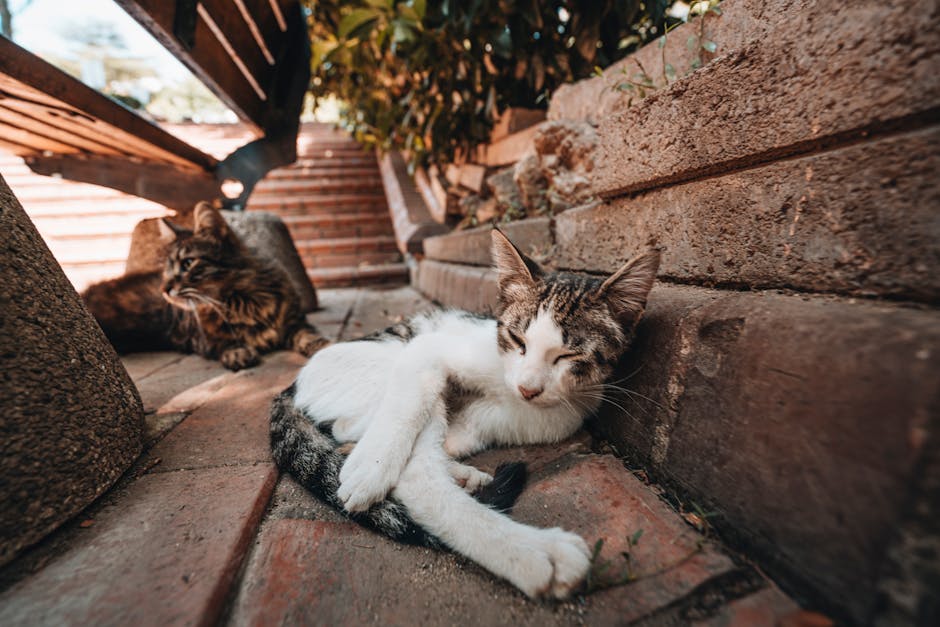Cats are considered as one of the most popular pets worldwide and are known for their independent nature. They are unique creatures that have their own behaviors, attitudes, and ways of showing affection towards their owners. As a cat owner, you may have wondered how your feline companion views you. Do they see you as a friend, a caretaker, or just a source of food? In this blog post, we will explore the fascinating world of cat psychology and attempt to understand how cats view their owners.
They see their owners as a companion and source of social interaction.

Cats are social animals that desire interaction with their owners. Despite their independent nature, they form strong bonds with their human companions and see them as a source of affection and comfort. Cats enjoy being in close proximity to their owners and often view them as a companion with whom they can spend their time. Whether it's cuddling on the couch, playing with toys or receiving a simple pat on the head, cats seek out interaction from their owners and relish in their company. So if you're a proud cat owner, take comfort in knowing that your furry friend sees you as their trusted companion and valued source of social interaction.
Cats view their owners as protectors from perceived dangers and threats.

Cats may seem independent and self-sufficient, but deep down, they rely on their owners to protect them from perceived dangers and threats. Domestic cats have evolved from their wild ancestors, who had to fend for themselves in dangerous environments. As a result, cats have developed a natural instinct to seek safety and security from their owners.
Cats show their trust in their owners by seeking their attention and companionship. They may follow their owners around or snuggle up next to them for safety and comfort. Owners provide their cats with food, shelter, and medical care, which gives them a sense of security.
Cats also show their owners affection and gratitude for their protection. They may bring their owners gifts, such as prey, as a way of saying thank you. Some cats even become protective of their owners in return, following them and keeping watch over them.
In conclusion, while cats may be independent creatures, they rely on their owners for protection and security. Owners play an important role in their cats' lives by providing them with a sense of safety and comfort.
To some extent, cats may view their owners as competitors for resources.

To some extent, cats may view their owners as competitors for resources. In the wild, cats rely on their hunting skills to compete with other predators for food, shelter, and territory. This instinct doesn't disappear when they become domesticated; rather, it may become redirected towards their human owners.
Cats are particularly territorial creatures, and they may view their human's home as their own territory. As a result, they may be protective of their resources, such as food, toys, and favorite spots. They may also become jealous when their owners pay attention to other animals or people, such as other pets or family members.
However, it's important to note that cats are also capable of forming strong bonds with their owners. They may show affection through purring, rubbing against their owners, and even bringing gifts (such as dead animals). These actions show that cats recognize their owners as important figures in their lives.
Overall, cats' views of their owners are complex and can vary depending on the individual cat. However, it's clear that cats do view their owners as significant figures in their lives, and they can show both competition and affection towards them.
Cats may view their owners as part of their territory and may exhibit territorial behavior towards them.
Cats are known for their territorial behavior. They mark their territory by scratching, rubbing, and spraying. When it comes to their owners, cats may view them as a part of their territory. This territorial behavior could manifest in various ways. For instance, a cat may rub against its owner to mark them with its scent. They may also sit on their owner's lap or sleep next to them to show ownership over them. It is important to note that this territorial behavior does not mean that cats view their owners as inferior. Rather, it is their way of displaying their affection and marking their territory. Understanding a cat's territorial behavior can help owners create a better bond with their feline companions and allow them to thrive in their environment.
Cats may view their owners as a source of attention and affection.

Cats are known for being independent creatures. However, studies have shown that cats actually form strong bonds with their owners. They may not show it in the same way that dogs do, but cats may view their owners as a source of attention and affection.
Cats may prefer their owners over others, follow them around the house, and show excitement when they come home. They may also display certain behaviors, such as kneading, purring, or licking, as a way to show their love and affection.
It's important for cat owners to understand these behaviors and respond accordingly. Providing regular attention, playtime, and affection can strengthen the bond between a cat and their owner. It can also lead to a happier and healthier cat, both physically and emotionally.
In conclusion, cats may view their owners as an important source of attention and affection. Understanding and responding to these behaviors can strengthen the bond between a cat and their owner, leading to a happier and healthier relationship.
They may perceive their owners as a source of play and entertainment.

Some studies suggest that cats view their human owners as another type of cat, but a larger and clumsier one. However, cats also seem to understand that their owners are responsible for providing them with food, shelter, and attention. As such, they may perceive their owners as a source of play and entertainment.
Cats are natural hunters and predators. They enjoy playing with toys that mimic prey, and they love interactive playtime with their owners. Owners who engage with their cats in play have a strong bond with their pets. So, from the perspective of a cat, a playful owner may be seen as a fellow hunter and an essential source of fun.
In conclusion, cats view their owners as an important part of their life. They not only depend on their humans for food and shelter, but they also enjoy spending time with their owners. When we understand and respect a cat's need for play and interaction, we can strengthen our bond with them and appreciate the unique relationship we have with these fascinating creatures.
Cats may view their owners negatively if they associate them with painful or unpleasant experiences, such as being disciplined or taken to the vet.

Cats are well-known for being independent creatures who seem to have a mind of their own. However, despite their aloofness, they are still capable of forming strong bonds with their owners. Nevertheless, how they view their owners can drastically vary based on their experiences. For instance, if a cat associates their owner with painful or unpleasant experiences such as being disciplined or taken to the vet, it may cause them to view their owner negatively. This can manifest in the form of avoidance, aggression, or hostility towards their owner. Therefore, it is crucial for owners to establish a positive and loving bond with their feline companion, making them feel loved, secured, and comfortable in their presence.
Some cats may show a level of attachment and loyalty towards their owners.

Cats are often perceived as aloof and independent creatures, but some may show a level of attachment and loyalty towards their owners. These cats may follow their owners around, vocalize for attention, or even bring gifts such as toys or prey. However, it is important to note that not all cats exhibit this behavior and some may be perfectly content without a strong bond to their owner. It ultimately comes down to the individual cat's personality and previous experiences. It is up to the owner to provide a positive and nurturing environment that may foster a stronger connection with their feline companion.




